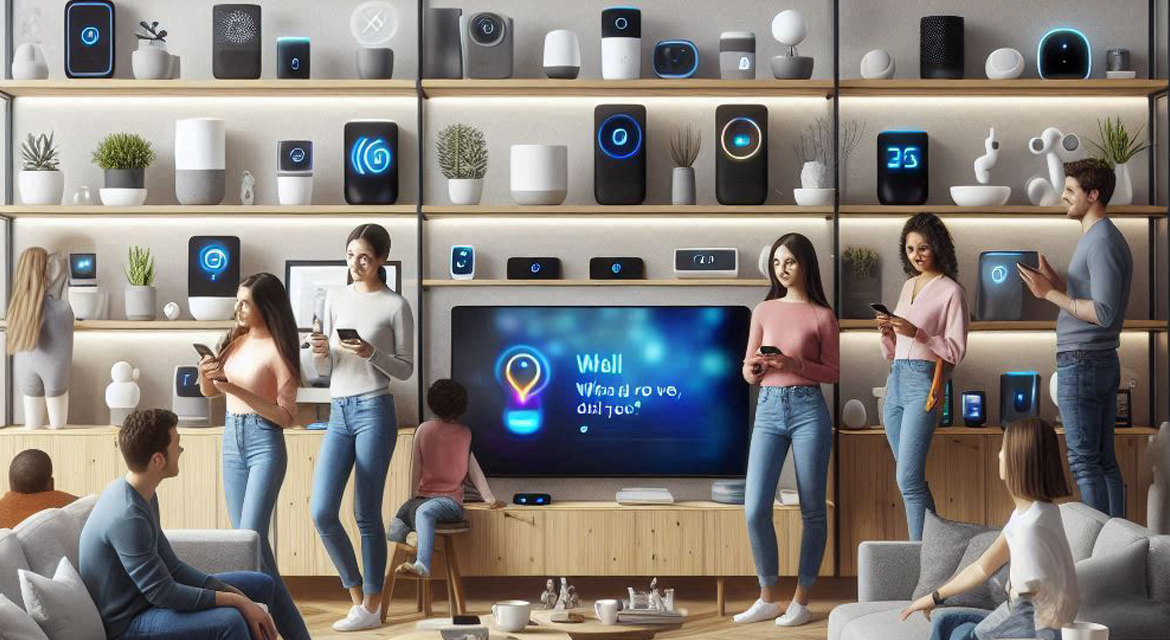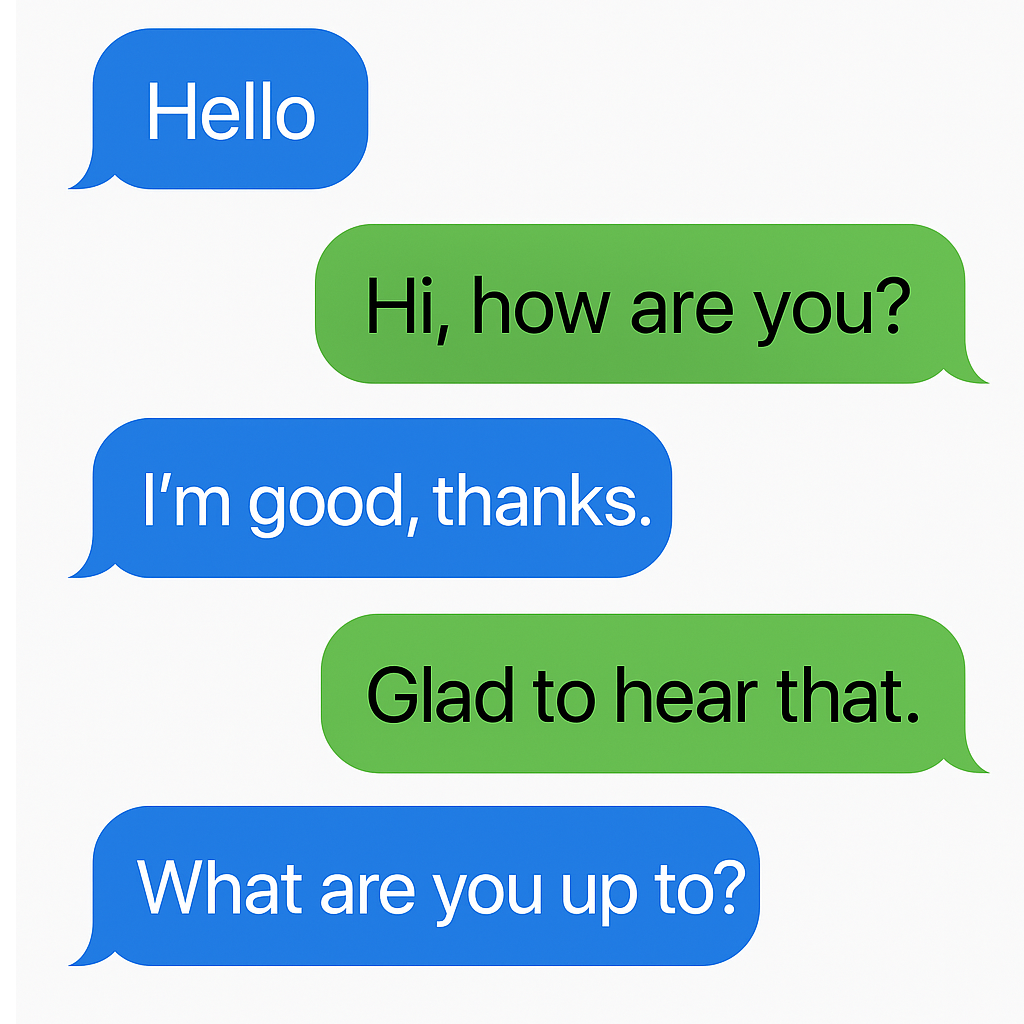Voice assistants have become the unsung heroes of our daily lives, always ready to answer our queries, set reminders, and even tell us a joke or two. From Siri to Alexa and Google Assistant, these AI pals are always there for us, no matter how bizarre our questions may be. They don’t judge if you ask them to play the latest pop hit for the tenth time in a row or if you need a reminder to water your plants. They dutifully respond with unwavering patience, making them the perfect non-judgmental companions in our increasingly digital world.
Gone are the days when asking a question meant risking a raised eyebrow or a snarky comment from a human. Voice assistants handle our quirkiest and most mundane questions with ease and neutrality. Have you ever wondered what the square root of 1,234 is at 3 AM? Or maybe you're curious about how to cook a perfect batch of quinoa. No matter the query, your voice assistant is there to provide an answer without any hint of judgment.
These AI marvels have revolutionized the way we interact with technology. They’ve brought a level of convenience and accessibility that was once unimaginable. Through natural language processing and machine learning, voice assistants have become increasingly adept at understanding and responding to a wide range of questions. They’ve become our go-to for quick information, entertainment, and even companionship, all without batting an eyelid at the oddities of our minds.
The Non-Judgmental Nature of Voice Assistants
One of the most endearing qualities of voice assistants is their absolute lack of judgment. They don’t care if you ask them how to spell “defenestration” for the third time this week or if you need a step-by-step guide on how to make a cup of instant noodles. These digital companions are programmed to assist, not critique, making them the ultimate confidants.
Imagine asking a human friend some of the questions you’ve posed to your voice assistant. The friend might chuckle or give you a puzzled look, but your AI assistant simply provides the information you need with a robotic grace. Whether it’s figuring out the release date of your favorite TV show or converting ounces to grams, voice assistants are there to help without making you feel self-conscious.
This non-judgmental nature is particularly beneficial in educational settings. Learners can ask basic or repetitive questions without fear of embarrassment. Voice assistants create a safe space for curiosity, encouraging users to explore and learn without the pressure of being judged. This is especially important for children, who are in their formative years and can benefit greatly from an encouraging, non-critical source of information.
Quirky Questions and Hilarious Responses
Voice assistants have a knack for turning even the quirkiest questions into delightful interactions. Have you ever asked Siri if she dreams? Or maybe you’ve inquired about Alexa’s favorite color. These AI friends are programmed with a sense of humor, often responding with witty and amusing replies that can brighten anyone’s day. It’s like having a comedian on standby, ready to entertain at a moment’s notice.
Some users have taken to social media to share the hilarious responses they’ve received from their voice assistants. From Siri’s sassy retorts to Google Assistant’s clever comebacks, these interactions have become a source of entertainment and joy for many. Asking your voice assistant to beatbox or tell a joke can result in some unexpectedly funny moments, showcasing the lighter side of AI.
These humorous exchanges also highlight the advanced programming that goes into creating voice assistants. Developers have infused these AI companions with personality, ensuring that their interactions feel more natural and engaging. This blend of functionality and fun makes voice assistants not just useful tools, but also delightful companions in our daily lives.
Meet the Popular Voice Assistants
Among the vast array of voice assistants available, a few have risen to prominence, becoming household names. Siri, Alexa, Google Assistant, and Cortana are the frontrunners in the world of AI companions, each with its own unique features and capabilities.
Siri, the voice assistant developed by Apple, has been a staple on iPhones and other Apple devices since its debut in 2011. Known for its conversational approach and witty responses, Siri can perform a wide range of tasks, from sending messages to controlling smart home devices. Its deep integration with the Apple ecosystem makes it a favorite among Apple users.
Alexa, created by Amazon, has revolutionized the smart home experience. Introduced through the Echo line of devices, Alexa is renowned for its ability to control smart home gadgets, play music, and provide weather updates. With thousands of "skills" available, Alexa's capabilities are constantly expanding, making it a versatile and powerful assistant.
Google Assistant, available on Android devices and Google Home products, is celebrated for its exceptional search capabilities and contextual understanding. Google Assistant can answer complex questions, provide personalized recommendations, and even engage in two-way conversations. Its integration with Google's vast array of services ensures a seamless user experience.
Cortana, developed by Microsoft, is designed to assist with productivity tasks. Initially launched on Windows devices, Cortana can manage calendars, set reminders, and provide insights from connected services like Office 365. Although its presence has diminished in the consumer market, Cortana remains a valuable tool for business users.
Practical Uses of Voice Assistants
Beyond the humor and non-judgmental support, voice assistants offer a plethora of practical uses that make our lives easier. From setting timers and alarms to providing weather updates and controlling smart home devices, these AI helpers are versatile and efficient. They can even assist with more complex tasks, such as managing schedules, sending messages, and making phone calls.
For busy individuals, voice assistants are a godsend. They can streamline daily routines, allowing users to multitask with ease. Imagine cooking dinner while asking your voice assistant to read out a recipe or managing your calendar while driving to work. The hands-free convenience provided by voice assistants is unmatched, making them indispensable in our fast-paced world.
Moreover, voice assistants are continually evolving, with new features and improvements being rolled out regularly. This ongoing development ensures that they remain relevant and useful, adapting to the ever-changing needs of users. Whether it’s through enhanced voice recognition or integration with new technologies, voice assistants are constantly pushing the boundaries of what’s possible.
The Future of Voice Assistants
As technology continues to advance, the future of voice assistants looks incredibly promising. We can expect even more sophisticated AI companions that understand context and nuance better than ever before. Imagine a voice assistant that can anticipate your needs, offering suggestions and solutions before you even ask. The potential for growth and innovation in this field is limitless.
In the future, voice assistants may become even more integrated into our daily lives, seamlessly blending into various aspects of our routines. They could assist with personalized health recommendations, provide real-time translations, and even offer emotional support. The possibilities are endless, and the impact on our lives could be profound.
However, as voice assistants become more advanced, it’s essential to consider the ethical implications and ensure that these technologies are developed responsibly. Privacy, security, and bias are critical issues that must be addressed to ensure that voice assistants remain trustworthy and beneficial. By navigating these challenges thoughtfully, we can look forward to a future where voice assistants continue to be our reliable, non-judgmental AI friends.
Voice assistants have undoubtedly become indispensable companions, offering non-judgmental support and practical solutions to our everyday queries. Their humorous and quirky interactions add a touch of joy to our lives, making them more than just tools but true AI friends. As we look to the future, the potential for voice assistants to evolve and enhance our lives is boundless. Embracing these AI companions with their quirks and capabilities can only lead to a more connected and convenient world.
So, the next time you find yourself wondering about the most random fact or needing assistance with the simplest task, don’t hesitate to ask your voice assistant. They’re always there to help, without a hint of judgment, ready to be the AI friend you never knew you needed.












